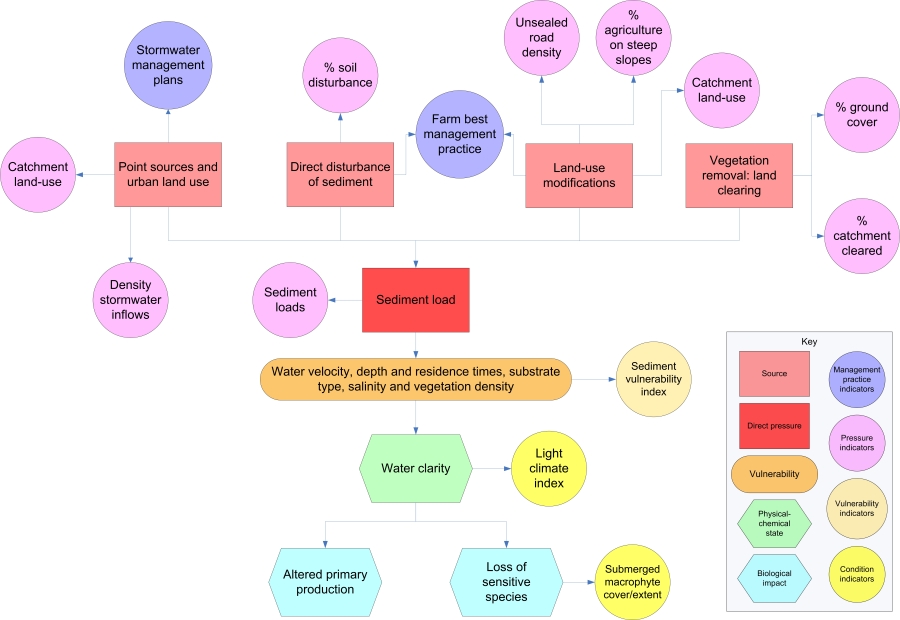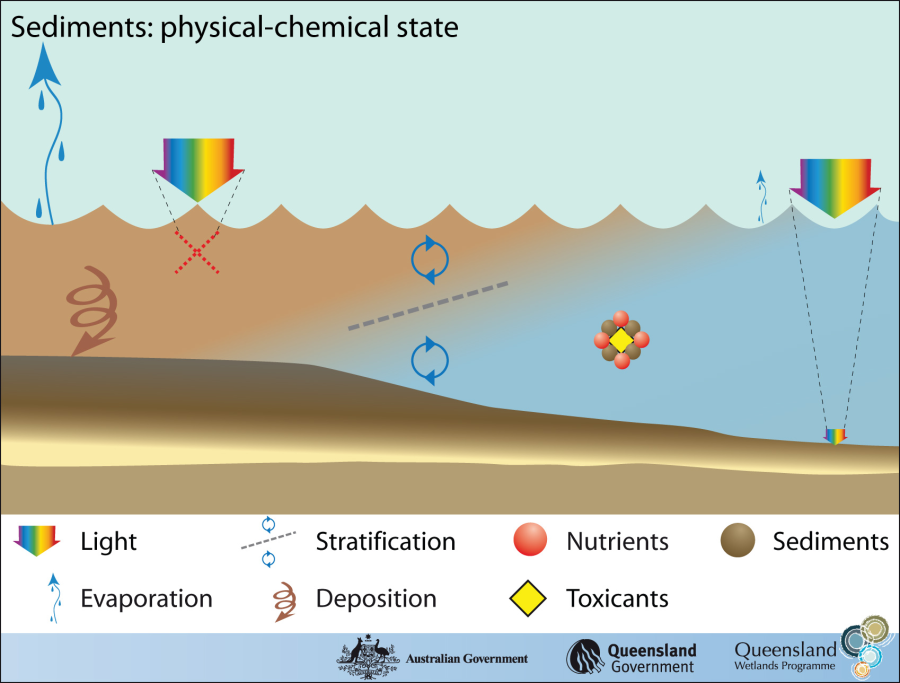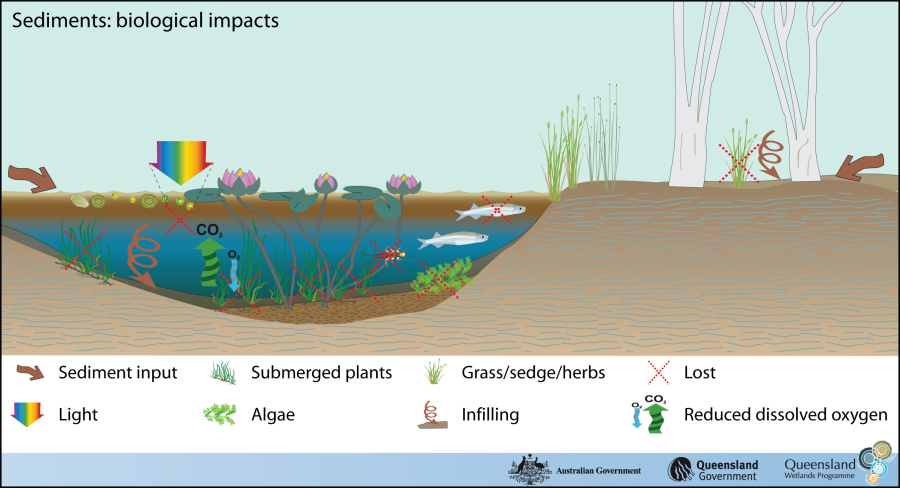|
|
Aquatic sediments – StateAquatic sediments – StateFlow chart showing the major elements associated with aquatic sediment management
Click on elements of the flow chart or select from the tabs below
Sediment rich water entering a wetland may result in a loss of sensitive species and a change in primary production and community structure. A decrease in light penetration will decrease photosynthesis and cause a loss of submerged plants and/or algae. This large pool of organic matter to be decomposed can greatly reduce dissolved oxygen levels. The effects of increased sediment loads such as smothering, clogging of gills or loss of visibility (for catching prey) can kill sensitive fauna such as fish or macroinvertebrates. Sediment loads can infill wetlands, altering the wet/dry periodicity and result in a change from more aquatic species, such as grass/sedge/herbs to more terrestrial species, such as trees.
Last updated: 22 March 2013 This page should be cited as: Department of Environment, Science and Innovation, Queensland (2013) Aquatic sediments – State, WetlandInfo website, accessed 8 May 2025. Available at: https://wetlandinfo.des.qld.gov.au/wetlands/management/pressures/lacustrine-palustrine-threats/aquatic-sediments/state.html |

 — Department of the Environment, Tourism, Science and Innovation
— Department of the Environment, Tourism, Science and Innovation




